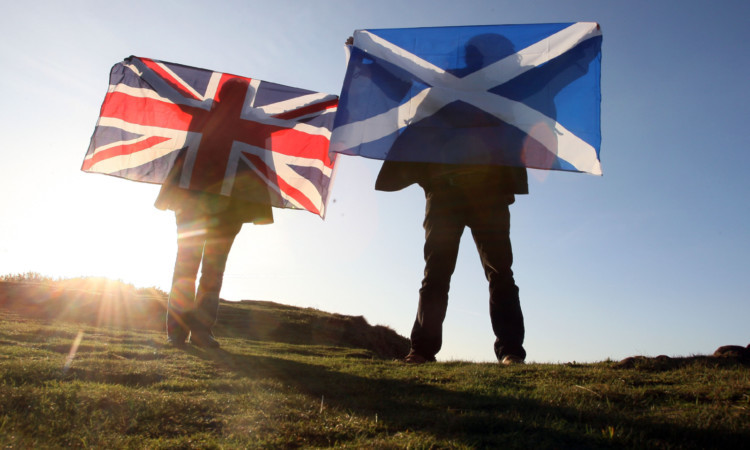
AN independent Scotland could emulate the world’s most successful small economies, providing the country with an economic boost that is equivalent of £4,100 per person, a new report will argue.
The claim will be the core finding of the long-awaited report from the SNP’s Sustainable Growth Commission.
The 354-page report, to be published on Friday, has already been handed over to First Minister and SNP leader Nicola Sturgeon, who said it would “restart the debate” on Scottish independence.
New SNP blueprint for independence set to include creation of a Scottish pound
The party had tasked former SNP MSP Andrew Wilson with looking at economic policy options for an independent Scotland back in 2016.
His report will outline 30 recommendations, which the commission believes could deliver a “sustainable improvement in living standards” in a generation.
Mr Wilson said his report – Scotland: The New Case for Optimism – would “present a framework that demonstrates how Scotland can emulate the best-performing economies and societies in the world”.
The commission studied 12 small advanced economies across the globe, looking at Austria, Belgium, Denmark, Finland, Hong Kong, Ireland, Netherlands, New Zealand, Norway, Singapore, Sweden and Switzerland – and in particular it focused on lessons to be learned from Denmark, Finland and New Zealand.
Its analysis claims small economies have consistently outperformed larger ones by about 0.7 percentage points a year over the last 25 years.
As a result, it claims the countries studied remained economically competitive at the same time as larger economies – including that of the UK – have “retreated substantially”.
Smaller economies tend to have lower unemployment than their larger counterparts, the report will state, with some also benefiting from lower levels of income inequality.
The report highlights the need for “disciplined public finances” and a “long-term cross-partisan strategy” for success.
In addition, it argues that successful small countries focus on innovation, have a friendly approach to migration and a highly-skilled workforce.
It goes on to argue taxation policy should be focused on economic development, rather than on competing as a low-tax nation, and that quality of life must be one of the key goals.
Speaking ahead of the report’s publication, Mr Wilson stated: “As a first step, there must be an acceptance that small nations can be successful and that Scotland can be one of those countries.
“Our work shows that small countries can be amongst the most economically successful countries in the world, with higher standards of living and lower levels of inequality than many larger economies.”
He continued: “There is nothing intrinsic in any of the best-performing economies that Scotland does not have.
“To secure an improvement in our performance will take purposeful strategic effort for over a generation.
“We require world-class policy, world-class institutions and cross-partisan effort if we are to achieve our ambition to create a much more successful economy and cohesive and fair society.
“We believe that the whole report provides the most substantially considered economic policy proposals for Scotland and independence that have been produced to date, with challenge and opportunity for all sides of Scotland’s debate.”
Scottish Conservative deputy leader Jackson Carlaw said: “The SNP can pluck out any number of fanciful examples, but it won’t change the fact Scotland is far more prosperous and secure as part of the UK.”
With Scots having voted against independence in 2014, the Tory MSP added: “People are still asking the question why the SNP is putting so much effort into a question that was settled decisively just a few years ago.
“This is all about Nicola Sturgeon trying to secure her legacy and a place in history, but Scots are fed-up of her grandstanding.”
Scottish Labour leader Richard Leonard said: “The economic transformation Scotland needs and wants will not be delivered by Scotland leaving the UK. No amount of promises made by SNP advisers and politicians will change that. ”
He added that Scots would “rightly be wary of fantasy numbers plucked from thin air by the SNP and promised to every man, woman and child in the country in the event of Scotland leaving the UK”.
Scottish Liberal Democrat leader Willie Rennie said: “The SNP have had a decade in charge of the Scottish economy and the result has been that we systematically lag behind the rest of the UK.
“Why would the Scottish public entrust their futures to this prospectus?”

Enjoy the convenience of having The Sunday Post delivered as a digital ePaper straight to your smartphone, tablet or computer.
Subscribe for only £5.49 a month and enjoy all the benefits of the printed paper as a digital replica.
Subscribe